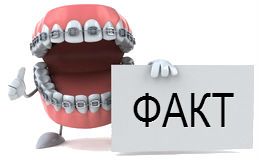Proper oral care is the guarantee of a beautiful smile. It is this fact that is often paid attention to at the first meeting, on the basis of which an opinion about a person is formed. Therefore, everyone would like to have perfect teeth. Unfortunately, not all types of contaminants are easy to remove with the usual hygiene products. Tartar and plaque give the enamel an unpleasant yellow tint, which is quite difficult to remove.
Can you brush your teeth with baking soda?
The bleaching properties of baking soda have long been known. This ingredient is widely used for cleaning the mouth. But, few people know how to use it correctly. Soda not only tends to quickly whiten tooth enamel, but it is also quite dangerous. You need to be able to use it correctly, otherwise there is a risk of not only getting not the most beautiful smile, but even losing your teeth.
Why is soda so popular?
The answer to this question is the simplest. Firstly, it really helps, and secondly, this method of brushing your teeth allows you to achieve the desired result in just a few procedures. The price of such whitening makes it even more attractive.
Brushing your teeth with baking soda is a budget option. Dental offices offer such services for a lot of money. But few people can spend a fortune to achieve their dreams. Moreover, there are options that are much cheaper and in no way inferior in their results. Brushing your teeth with baking soda at home is the easiest and most popular way to achieve the desired whiteness of your teeth.
Is it bad to brush your teeth with baking soda?
Everything has its shortcomings. In brushing your teeth with soda, they also could not do without them. Despite the simplicity of the procedure and the positive effect, the result of whitening with sodium bicarbonate is very short. Such a substance, eliminating tartar and plaque, also thins the enamel. This fact speaks very eloquently about the danger of the method, because thin tooth enamel is a direct path to the appearance of caries, which leads to complete destruction of the tooth.
This method is not suitable for people who suffer from bleeding gums and allergic reactions. Soda makes the mucous membranes even more vulnerable and is not a weak allergen.
How to brush your teeth with baking soda correctly?
There are two methods for properly brushing your teeth with baking soda:
- with the help of powder;
- concentrated solution.
It is difficult to say which of these methods is the most effective and safe. This requires an individual approach. It is not difficult to prepare a solution, it can be easily dealt with even without any special skills. The concentrate can be considered ready for cleaning if the next pinch of soda added to it no longer dissolves.
You can apply the cleansing mixture to your teeth with a gauze or cotton swab. To achieve the best effect, it is necessary to make rubbing movements for several minutes.
Many do not tolerate the smell and taste of soda. This can be dealt with. To do this, add a little mint toothpaste or rinse to the concentrate or powder.
Some use baking soda to brush their teeth regularly. Such an approach is highly questionable. The principle of action of soda for hygienic purposes for the oral cavity is to remove dirt from the teeth along with a thin layer of tooth enamel. With frequent use of such a cleaning composition, the enamel can be completely erased. Therefore, it is better to abandon the regular use of sodium bicarbonate for cosmetic purposes.
How to increase the effect of soda?
For those who are not afraid to ruin their teeth and are ready for drastic measures to make their smile snow-white, there is a way to improve whitening with soda several times over. To do this, add a little lemon juice to the cleaning concentrate. Teeth with the help of such a tool will immediately become lighter by several tones.
Despite the fact that a beautiful smile is a true adornment of any person, you should not go to extreme measures. Evaluate all the pros and cons of brushing your teeth with soda, because the health of your teeth is much more important than their whiteness. And do not forget that healthy teeth most often have a natural white tint without the use of additional methods of cleaning.






